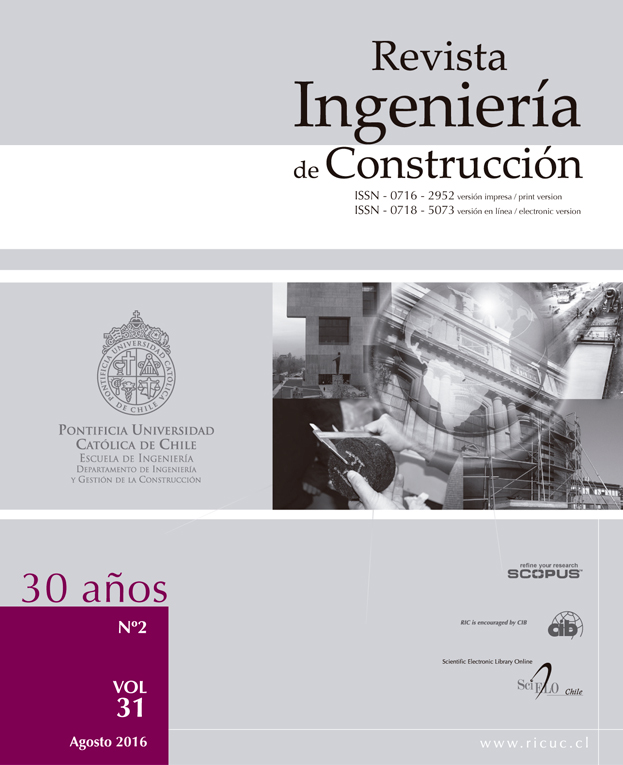Towards zero-process waste through supply chain integration in steel construction
DOI:
https://doi.org/10.4067/S0718-50732016000200001Keywords:
zero waste, feedforward control, supply chainAbstract
CPM and PERT are well established as the main tools to plan and control construction projects. However, the planning and control of construction field operations has to consider the minute-by-minute complexity of bringing multiple resources together to produce a work package. At this level, the quality of each resource has major effects on the productivity, quality or safety. The rapidly changing dynamic nature of the site and the shifting quality of critical factors requires a new model to achieve zero-process waste. This paper presents a new construction management model that embraces a waste-based feed-forward control methodology designed to eliminate process- or muda-waste rather than high productivity. It extends the concept of the seven mudas by Taiichi Ohno to include all construction specific wastes. Of special interest of the discussed work is the waste effect of poor communication along the supply chain. After discussing the rational of the model the paper highlights the results of field observations in the area of foundations and steel construction. Wireless cameras were used for continuous-time studies to measure productive and wasted labor-hours before and after changes in the material supply logistics were implemented.


